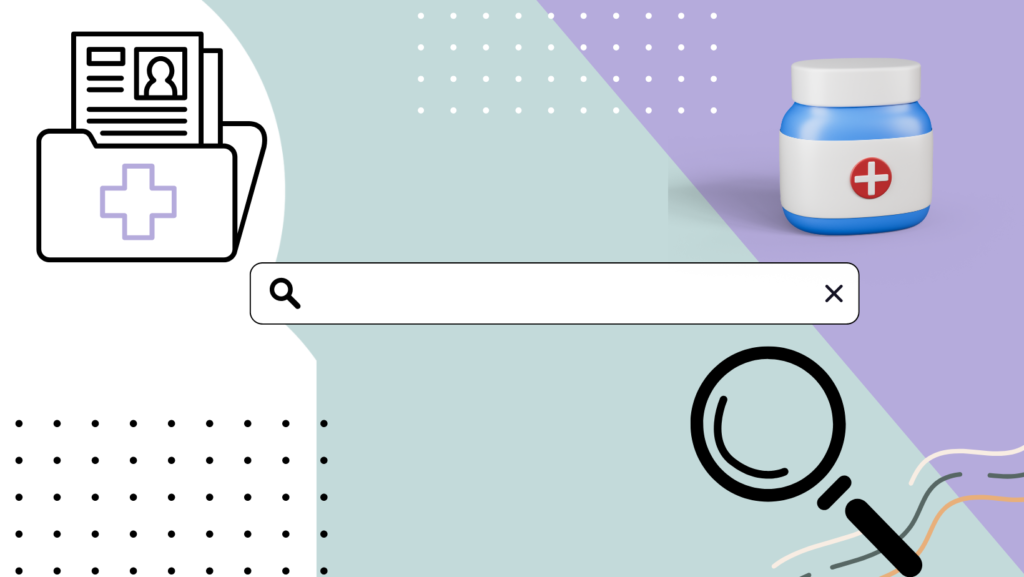
In the digital era, where information is readily accessible with a simple search, concerns about online privacy have reached a critical juncture. Sensitive personal information, particularly medical records, holds immense value in providing personalized healthcare and ensuring proper medical treatment. However, the growing prevalence of electronic health records and the widespread use of search engines have inadvertently exposed individuals to potential privacy breaches. This has sparked a pressing need to safeguard personal medical data from unauthorized access and potential misuse.
The sheer dominance of Google as the world’s most popular search engine raises specific challenges when it comes to privacy protection. Medical records, once made available online, can quickly find their way into search results, allowing anyone with an internet connection to access sensitive information about an individual’s health history. Such uncontrolled exposure poses significant risks, including identity theft, blackmail, discrimination, and reputational damage. As a result, individuals, healthcare providers, and policymakers are increasingly concerned about the ramifications of medical records being accessible through Google searches.
Understanding the Google Search Engine and Medical Records
How Google Crawls and Indexes Web Pages, Including Medical Records
The functioning of the Google search engine is a complex process that involves indexing vast amounts of information available on the internet. To make this information accessible and relevant to users, Google utilizes a process called “web crawling” and “indexing.”
Web Crawling
Google employs automated programs known as “spiders” or “bots” to systematically traverse the web and discover new web pages. These bots follow hyperlinks on existing web pages to access new content, including medical-related pages.
Indexing
After discovering a web page, Google’s bots analyze the content and extract relevant information, including medical data. This data is then added to Google’s massive index, which serves as a database of all the information the search engine has collected.
Types of Medical Information That Might Appear in Search Results
Medical information that might surface in Google search results can vary significantly in sensitivity and scope. This information may include, but is not limited to:
- Medical Diagnosis – specific medical conditions or ailments that individuals might have searched for or discussed on various platforms.
- Treatment Information – details about treatments, medications, and medical procedures used to manage specific health conditions.
- Personal Health Histories – information related to an individual’s medical past, such as previous surgeries, hospitalizations, or chronic illnesses.
- Doctor-Patient Communications – sensitive exchanges between patients and healthcare providers, possibly shared on medical forums or online patient portals.
- Medical Research and Studies – findings from medical research, clinical trials, or academic publications that involve individuals’ health data.
Legal Aspects: Google’s Policies Regarding Medical Information and Data Removal Requests
Google acknowledges the sensitivity of medical information and strives to balance the need for information accessibility with user privacy. The company’s policies regarding medical data are influenced by various legal regulations and internal guidelines.
Privacy and Security Measures
Google implements security protocols to protect user data and adheres to industry best practices for safeguarding sensitive information.
Personal Identifiable Information (PII)
Google’s policies prohibit the disclosure of any personal identifiable information, including medical data, without explicit user consent.
Right to Be Forgotten
In compliance with the European Union’s “right to be forgotten” ruling, Google allows individuals to request the removal of specific URLs from search results under certain conditions.
Data Removal Requests
Individuals concerned about their medical information appearing in search results can submit data removal requests to Google. However, the process is subject to review and may involve assessing the public interest in the information’s accessibility.
Understanding Google’s search indexing process and the types of medical information that can appear in search results is essential for individuals seeking to protect their medical privacy. Familiarizing oneself with Google’s policies and data removal procedures is crucial to effectively manage the accessibility of personal medical records on the internet.
Privacy and Security Implications of Medical Records on Google
Potential Risks: Identity Theft, Blackmail, Discrimination, and Other Adverse Consequences
Identity Theft
Medical records contain a wealth of personal information, including full names, addresses, social security numbers, and health insurance details. If this data falls into the wrong hands, it can be exploited for identity theft and financial fraud.
Blackmail and Extortion
Malicious actors may use sensitive medical information to extort individuals by threatening to expose their medical conditions or history.
Stigmatization and Discrimination
Disclosure of certain medical conditions or treatment history can lead to social stigmatization or potential discrimination in areas such as employment, insurance coverage, or social relationships.
Medical Fraud
Fraudsters can misuse medical information to submit false insurance claims or obtain prescription medications illegally.
Cybersecurity Breaches
Inadequate security measures in healthcare institutions may result in data breaches, leading to unauthorized access and public exposure of medical records on Google and other search engines.

Challenges in Removing Medical Records from Google
- Data fragmentation – medical records are scattered across multiple online platforms and websites
- Lack of Centralized Control – medical records may be stored on multiple websites, platforms, and databases, making it challenging for individuals to identify and request removal from all sources.
- User-Generated Content – patients might share their medical experiences on forums, social media, or review sites, leading to scattered and uncontrolled dissemination of medical information.
- Data Replication – medical records may be copied or replicated on multiple web pages, further complicating the process of data removal.
Google’s Policies and Tools for Data Removal
Google considers data removal requests for personal information that is “inaccurate, irrelevant, outdated, or otherwise inappropriate.” The data in question must pertain to the individual making the request.
Google’s policies cover a wide range of personal information, including but not limited to medical records, financial information, identification numbers, and contact details. Medical records are often considered sensitive information and may receive higher priority for removal, especially if they pose potential harm or legal implications to the affected individual. Google may request supporting documents or evidence to verify the requester’s identity and the accuracy of the claimed personal information.
Removing medical privacy information from Google’s search engine does not mean removing it from third-party platforms. so People can contact website owners directly or through contact forms to request that their medical information be removed from certain pages. In this way, the information will be completely removed.
The inadvertent exposure of medical data on search engines like Google has become a pressing issue, potentially leading to identity theft, blackmail, and discrimination, among other adverse consequences.
In response to these privacy challenges, professional content removal companies like NonDetected have emerged to address the growing need for safeguarding sensitive information online. NonDetected leverages its years of experience and expertise in content removal to help individuals protect their medical confidentiality by efficiently removing such information from Google and other sources.
Advantages of Contacting NonDetected, a Professional Content Removal Company:

Expertise and Experience
NonDetected brings years of experience in the field of content removal, particularly when it comes to sensitive information like medical records. Their team of experts is well-versed in the complexities and challenges of removing confidential data from Google’s search results and cached content.
Removal Beyond Google Search
NonDetected can go beyond Google’s search results and address data removal from other search engines, cached pages, and third-party websites. This comprehensive approach ensures that sensitive information is removed from various sources.
Efficient Removal Process
With their expertise, NonDetected knows the most effective methods to ensure the permanent removal of medical confidential information from Google. They can streamline the process, minimizing delays, and swiftly removing the sensitive data from search results.
Expert Handling of Verification
NonDetected is skilled in providing the necessary documentation and verification required by Google to process removal requests. This ensures that the requests are more likely to be approved, expediting the removal process.
In conclusion, contacting NonDetected offers numerous advantages when it comes to removing medical confidential information from Google. Their experience, expertise, efficient removal process, and commitment to privacy make them a reliable partner in ensuring sensitive data is protected from unauthorized access and potential misuse on the internet.

Your Medical Records from Google Search
Our company provides expert assistance in removing any type of information from various online platforms and can help you take the necessary steps to protect your online privacy.
Don’t hesitate to contact us for more information and professional support.
Now you know how to remove information from medical records
Protecting medical records in the digital age: it’s essential. Search engines such as Google make them easy to access, but there is a risk of identity theft, blackmail and reputational damage. Proactive measures to protect privacy and security are urgently needed.
Awareness needs to be raised about the risks associated with putting health information online. By being aware of Google’s policies, data deletion procedures and best practices, individuals can make informed decisions to protect their personal medical information.
Protecting medical records from Google search results is not only a personal responsibility, but a shared commitment between individuals and healthcare providers.
This article is available in other languages:






